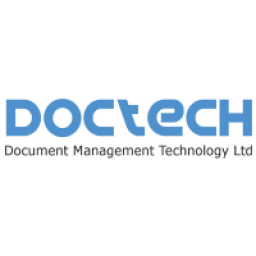DocTech recently attended the Greater Manchester Chamber of Commerce Summer Engineering and Manufacturing Forum where the topic for discussion was Sustainable Manufacturing.
Proving that you have sustainable credentials is becoming essential for winning work – especially if you are working on large projects or submitting a tender. Demonstrating internal sustainable policies is being weighted more heavily on tenders and the feeling in the industry is that those who do nothing will win nothing.
Richard Hagan, Managing Director at Crystal Doors, said that “understanding value rather than price” is the key to taking a more proactive approach to sustainability. With every new change you make, the momentum just keeps growing until it becomes a passion.
With so many great points discussed and shared by the speakers we wanted to share our quick wins for more sustainable manufacturing processes.
1. Vehicle Charging Points
Having access to vehicle charging points in your company car park will inspire more employees to invest in plug-in electric and hybrid vehicles. Creating a culture of acceptance for these new technologies will improve employee engagement and prepare your team for the ban on the sale of conventional petrol and diesel cars and vans due in 2030. Aligned with this is a review of non-essential business travel. With the increase in video technologies, manufacturing companies can review the decision making around their business trips and take a more sustainable approach.
2. Appoint a Sustainability Champion
Having a vague idea that sustainability is important will not inspire action. There should be someone in your team, at the highest level possible, who champions sustainable initiatives and puts thoughts into action. It is essential that sustainability becomes a core value to your business and that messaging and action come from the top down. Alongside the environmental benefits, having a commitment to sustainable working will bolster your brand and give you a differentiator when marketing your products.
3. Move to a Paperless Office
There is a lot of focus on automation and digitisaiton of the shop floor operations but what about the back office? Departments such as Finance, HR, Quality and Compliance are reliant on strict document controls, storage and workflows to ensure efficient operations. By scanning historical archives into a digital format, integrating with ERP Systems, and using software such as a Document Management System you can reduce the amount of new documents being printed and ensure a robust, long-term sustainable strategy for your document control. In addition to the reduction in paper, you will increase efficiency and improve compliance.
4. Intelligent Lighting Controls
According to studies, lighting in commercial building accounts for roughly 40% of energy consumption. Of this energy consumption, almost 30% is used to light areas that are unoccupied. By using motion detectors, Radio Frequency Identification (RFID) scanners, and other types of equipment, lights can be automatically turned on and off depending on the amount of the activity in the room. While lighting control systems require an additional investment up front, these are usually dwarfed by the energy cost savings over the life of a building.
5. Speak to Your Peers
Through networking with like-minded Manufacturers, you can share best practices and learn new techniques rather than feeling like you need to take on the challenge all alone. Organisations like Made Smarter and the AMRC organise events and forums where you can meet other Manufacturers and learn about government resources to support your investment.
If you’re looking for more tips and tricks for improving the sustainability of your manufacturing operation, there are lots of resources available online along with local and government schemes to support investment and operational change.
For more information on digitising your document-based processes check out other pages on our website, or call us on 0161 647 7040 to speak with one of our experts.
 Menzies LLP
Menzies LLP



